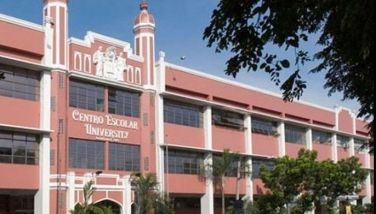Local pols ‘ignoring coconut pestilence’

The 12 Chinese intruders at the Tubbataha Reefs Marine Park could be military spies, fish poachers, or wildlife traffickers. Whatever, they need to be dealt the full force of law. They trespassed Philippine waters and a Unesco World Heritage Site. In running aground the North Atoll, they wrecked part of the fish spawning and feeding zone on which 300 million people in four countries depend for food. In possessing 31 slaughtered pangolins, broke international and local laws on endangered species and forest ecosystems. There are prison terms and fines for such transgressions.
Hopefully the Philippine government will ignore Chinese embassy cajolery to forgive and forget this intrusion. Feeble law enforcement by the Arroyo administration had emboldened repeated intrusions for most of the past decade. At least six times Malacañang gave in to Chinese envoys’ requests for clemency. Once it even arm-twisted the Palawan provincial prosecutor and jail warden to release 11 recidivist poachers from Hainan. Only the barricades by enraged environmentalists at the airport prevented the flight of the thieves.
Malacañang acquiescence then led to a diplomatic blunder. Bribed by Beijing with crooked loans, treasonous Philippine officials conceded the Palawan Sea in a covetous Chinese marine survey. Upon completing that survey China declared a “nine-dash line†claim over the entire South China Sea, encompassing Palawan and Luzon coastal waters.
For poaching or whatever motive, the Chinese intrusions have deep implications on Philippine sovereignty.
* * *
As of February about a fifth of coconut trees in Batangas province were infested by scale insects. Worst hit were the nine municipalities of Tanauan, Calaca, Lemery, Sto. Tomas, Malvar, Agoncillo, Talisay, Laurel, and Balete, where a third of the palm have weakened or died.
The Philippine Coconut Authority has spent P10 million to contain the pestilence. It mass-breeds predators of the killer insect, sprays trees, and oversees the burning of infected leaves, among others.
Still the infestation has spread to adjoining provinces. Alarms were raised in Carmona and Silang towns in Cavite; Calamba in Laguna; and Sampaloc, Mauban, and Dolores in Quezon.
Batangas planters cry that the national government scantly is funding research and repression since the outbreak in July 2010. Agham sectoral Rep. Angelo Palmones blames instead the local governments for failure to seclude infected fronds and fruit. The local pols must take time off from election campaigning, to consult with coconut stakeholders.
Voracious sapsuckers, scale insects (Aspidiotus destructor) attack the underside of coconut leaves till they wither and fall off. They crawl only one meter, but spread great distances by wind, flying insects, birds, and human transport of infected material. Within a month’s lifespan females reproduce 20 to 50 eggs. Scale insects have been found in other coconut countries, controlled naturally by predator coccinellid beetles. Although coconut is the favorite host, scale insects can also infest mango, banana, guava, papaya, and avocado trees.
The PCA did take too long to react to epidemic in Tanauan. Undermanned and underfunded, it started to tally the infected trees and monitor the spread only in mid-2012. By then scale insects had infested surrounding towns. In Tanauan alone about 700,000 trees have since wilted or been felled for coco-lumber, says townsman Jose Osias. Planters Bert Tomas and Francisco Lirio recall begging radio-TV stations for news coverage to catch the national government’s attention.
For his part, PCA administrator Euclides Forbes says five labs are rearing predator beetles. Common pesticides don’t work since none are specific for the scale insects. Besides the chemicals scar fruits and leaves, notes UP Los Baños entomologist Dr. Luis Rey Velasco. But spraying trees with diluted vinegar or four-percent dishwashing soap has proven effective. PCA field men advise to cut off and burn infected fronds. Forbes cautions against panic, stressing that less than one percent of the country’s 350 million coconut trees are affected. Still, that’s not reassuring for Batangueños who are suffering income slashes. As many as 1.5 million trees are now infested in Cavite-Laguna-Batangas-Quezon, Osias says.
After alerting colleagues through a privilege speech in February, science party Rep. Palmones plowed P500,000 from his pork barrel into coconut disease control. None of the Calabarzon district congressmen followed suit. Contributions could have gone a long way to help PCA in pest mapping, surveillance, and prevention; leaf pruning and burning; tree cutting and disposal; bio-control and spraying; and info diffusion. They’re busier with election spending maybe.
In ensuing town hall meetings the governors and mayors were tasked to quarantine the diseased leaves and fruit. Palmones says the Southern Tagalog folk needed to be warned against transporting, especially during the summer fiesta months, unshelled fruits and fronds for sale as fans, mats, and yarn. But the local officials’ reluctance to restrict coco trade worsened the infestation, Palmones says. Yet, coco traders would have complied. Buko vendor Bido Gonzales of Tanauan, for one, voluntarily switched to Lipa and other towns for nut supply.
The PCA’s duty is to prevent infestation in all 68 coconut-growing provinces. Or else, 3.4 million farmer-families — a fourth of the country’s population — would go hungry.
Experts say Batangas would take three years to return to normalcy. Planters say the national government should release part of the P150-billion coconut levy fund, sitting around in bank deposits and corporate shares, to wipe out the blight. “This is a calamity without floods or landslides, threatening tens of thousands of us,†cries Lirio.
* * *
Catch Sapol radio show, Saturdays, 8-10 a.m., DWIZ (882-AM).
E-mail: jariusbondoc@gmail.com
- Latest
- Trending























